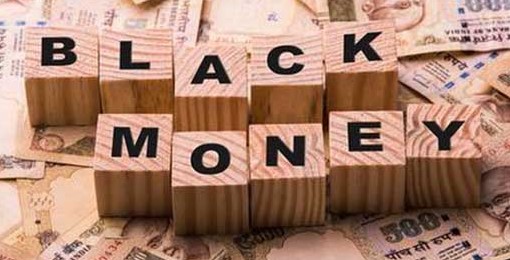
New Delhi: In order to check the generation of black money, the Central Board of Direct Taxes (CBDT) of India has notified new rules under which cash receipts and high value transactions by individuals beyond a certain threshold will have to be reported by banks and companies issuing shares or bonds to the Income Tax authorities with effect from April 1,
Under the new norms, cash receipts, purchase of shares, mutual funds, immovable property, term deposits, sale of foreign currency will have to be reported to the tax authorities online in a prescribed format for which Form 61A has been introduced.
A senior official of the Income Tax Department told Mail that the move would help to provide an alternative data base to keep black money transactions in check apart from the PAN number that has to be furnished by individuals for high value transactions.
The Finance Ministry notification states that the receipt from any person for sale of foreign currency including any credit of such currency to foreign exchange card or through the issue of travelers’ cheque or draft of Rs 10 lakh or more will also have to be reported. T HE return in Form No. 61A will have to be furnished to the Director of Income-tax (Intelligence and Criminal Investigation) or the Joint Director of Income- tax (Intelligence and Criminal Investigation) through online transmission of electronic data to a server designated for this purpose under a digital signature.
The Finance Ministry notification said the registrar will have to report purchase and sale of all immovable property exceeding Rs 30 lakh to I- T authorities. It further specified that professionals will be required to inform the tax department of receipt of cash payment exceeding Rs 2 lakh for sale of any goods or services. It also states that banks will have to report cash deposits aggregating Rs 10 lakh or more in a financial year in one or more accounts of a person.
The same threshold will apply for term deposits in banks, but would exclude renewal of term deposits. These norms will also cover deposits and withdrawal made in Post Office Account. It further said banking companies or financial institutions will also have to report to the authorities payments made by a person aggregating to Rs 1 lakh or more in cash or Rs 10 lakh or more by another mode against bills in respect of one or more credit cards in a financial year.
The notification has also laid down the reporting norms for cash payment of Rs 10 lakh or more in a financial year for purchase of bank drafts or pre- paid instrument issued by RBI. Cash deposits or withdrawals aggregating to Rs 50 lakh or more in a financial year in one or more current account of a person will have to be reported by the bank to the I T authorities.
A company will be required to report receipt of Rs 10 lakh or more from a person in a financial year for acquiring bonds, debentures, shares or mutual funds.
The buy-back of shares from any person (other than the shares bought in the open market) for an amount or value aggregating to Rs 10 lakh or more in a financial year will also have to be reported companies listed on a recognized stock exchange purchasing their own securities.
The new measures form part of Finance Minister Arun Jaitley’s strategy to fight the menace of black money.
Form 61A will help to provide an alternative data base to keep black money transactions in check apart from the PAN number that has to be furnished by individuals for high value transactions.



